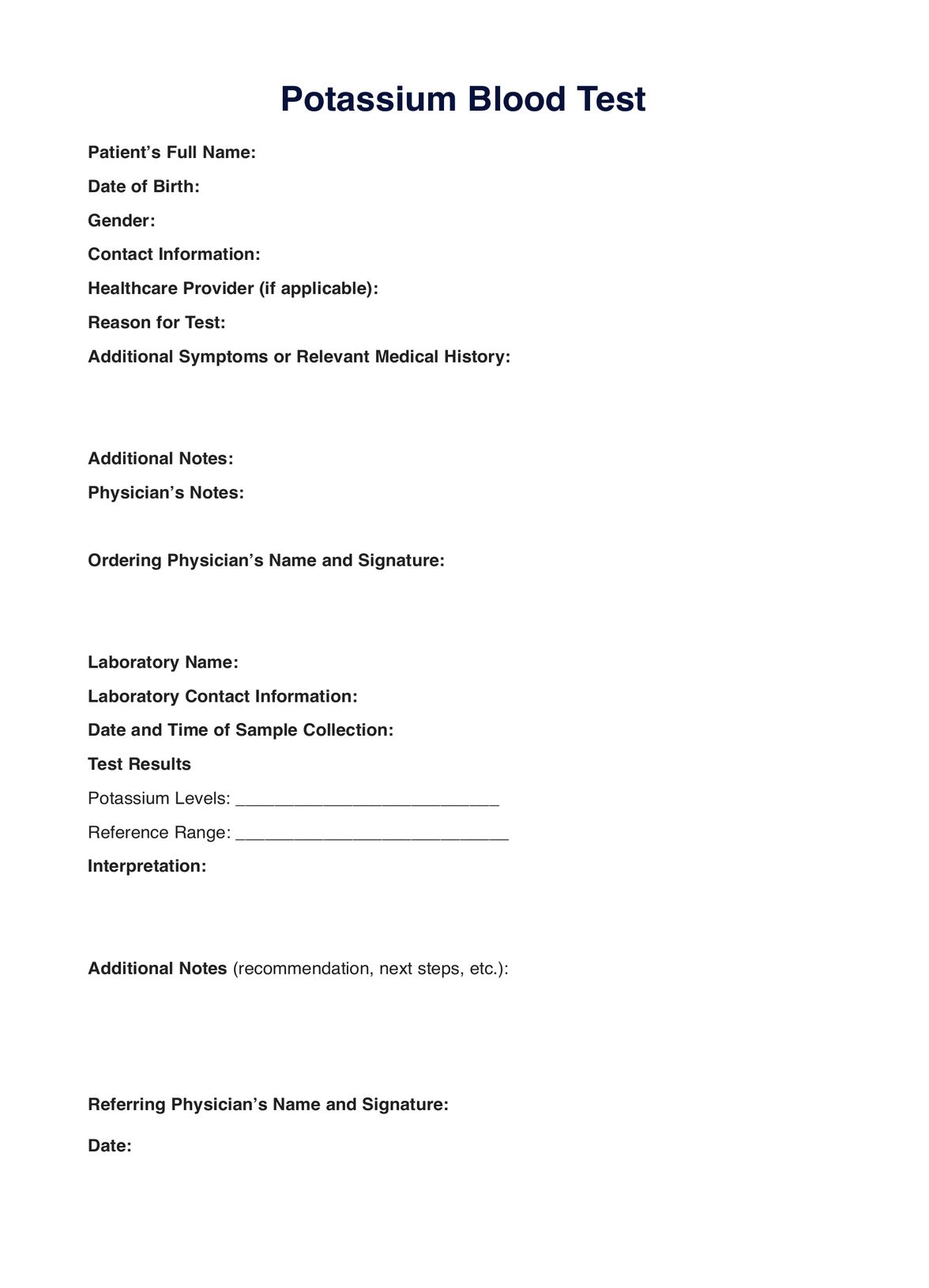General physicians, their assistants, and nurses are the healthcare practitioners who typically request a potassium blood test. However, it can also be requested by heart or kidney specialists monitoring their patient’s condition and medication.

Potassium Blood
Know more about the Potassium Blood test, its uses, result interpretation, etc. Here’s a short guide for more information and a free template you can use.
Use Template
Potassium Blood Template
Commonly asked questions
The potassium blood test can be used as a tool to aid with the diagnosis, management, or monitoring of suspected or confirmed electrolyte imbalance problems or heart and kidney-related problems.
Collecting a sample for the potassium blood test will only take a few minutes. However, laboratory processing can take a few hours to a few days, depending on the laboratory.
EHR and practice management software
Get started for free
*No credit card required
Free
$0/usd
Unlimited clients
Telehealth
1GB of storage
Client portal text
Automated billing and online payments











